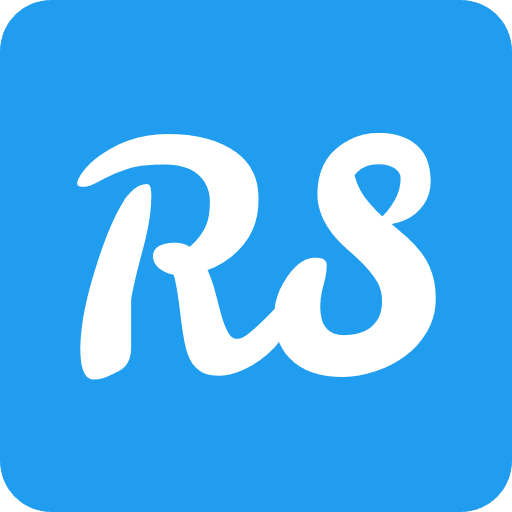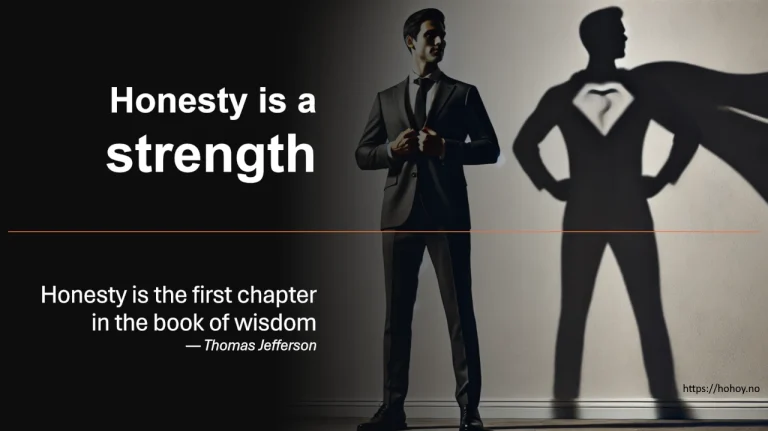We love to say that “honesty lasts the longest,” and the nodding that follows is always as synchronized as a men’s choir. But let’s be honest (ironically enough): that’s not always true. Honesty is important, yes—but sometimes, it’s not enough on its own. In fact, too much perfection and always being “right” can actually put both your credibility and your relationships at risk. Surprised? Let me explain.
Perfection breeds mistrust
I remember a situation at work where I had the answer to absolutely everything the customer asked. You know that feeling of being on top of the world—Mr. Solution-Oriented. But eventually, the customer started giving me that classic “something’s fishy here” look. That’s when I realized I had to switch tactics. The next time the customer asked something specific, I said: “I’m actually not sure about that, but I’ll find out for you.”
And you know what? It worked. Not just because I came back later with a good answer, but because it showed that I wasn’t trying to be superhuman. Nobody likes someone who seems too perfect. Perfection breeds mistrust, while small mistakes and human moments build trust.
This isn’t just my personal experience. Research shows that perfectionism can have far greater consequences than we realize. A comprehensive review of 43 studies found that perfectionists are at a higher risk of burnout. This constant striving for flawlessness can not only damage your credibility—it can also harm your mental health. Maybe it’s this very perfection that makes people pull away—or that leaves you drained.
When communication becomes a barrier to input
Perfectionism isn’t just about what we do—it’s also about how we communicate. One thing I’ve learned is that the way we express ourselves can unintentionally create barriers. I’ve often noticed that people hesitate to give me advice or input—ironically, exactly when I’m feeling unsure and need their help.
I’ve been told that I communicate clearly and confidently, which many see as a strength. But that very clarity can sometimes become a barrier. When I seek advice, I might unintentionally give the impression that I already have the answer—simply because I tend to speak in a structured and thoughtful way, even when I’m unsure. That can make people hesitate to offer suggestions, because they might think I don’t need them.
This is something I’ve been working on becoming more aware of. I’ve realized that even when I’m uncertain, the way I phrase things—or my body language—can come across as confident. It’s a kind of “perfectionism in communication”—a desire to be clear and structured that, paradoxically, can create distance.
What I’ve learned is that clarity and vulnerability need to go hand in hand. When I want input, I now try to be explicit about it. For example, I might say: “I’m actually unsure about this and need input to move forward.” Or: “I know I might sound confident, but I’m really hoping you can help me see this from another perspective.”
This self-awareness has also made me more attuned to how people around me react. I try to create space and encourage counterarguments or new ideas—and most importantly, take pauses to show that I’m really listening. I believe this all comes down to something fundamental: If we want others to share their thoughts, we need to create an environment where they feel their voice is valued.
Shared authority – let others contribute
Part of this also involves knowing when to let others take the stage. Sometimes it’s better to say, “Let me ask a colleague to explain this in more detail,” even if you know the answer yourself. It’s not about lacking competence—it’s about being confident enough to bring others in.
Credibility isn’t about having all the answers yourself—it’s about making space for others to contribute. Just look at the news. Anchors often know the answers to the questions they ask the experts, but by bringing in others, they build credibility. When more people stand behind a message, it becomes stronger.
This principle is well supported by research on trust in relationships. Studies show that trust is a fundamental prerequisite for strong relationships, both professionally and personally. Sharing authority—like inviting a colleague to respond—signals professionalism and collaboration. When you’re willing to let others step forward, you’re not just showing confidence and competence—you’re showing you understand the value of creating results together.

A bit of everything – but never enough
I’m the kind of person who knows a little about a lot—and like most middle-aged men, I have an opinion on just about everything. But that breadth can sometimes give the wrong impression. It might look like I’m a walking encyclopedia—or worse, trying to be one. The truth is quite different. Most of the time, I only have surface-level knowledge. Enough to draw connections, but rarely enough to go deep. And yes, I Google things the moment a conversation ends—always ready for the next round. For me, learning isn’t just an interest—it’s a necessity.
This curiosity and ability to learn have followed me through every role I’ve had. I’m self-taught—learning through experience in a wide range of roles and environments. I’ve worked in media, as a paragliding instructor, and as an IT/AV technician at the University of Tromsø. Later, I moved on to Avikom/Easymeeting, where we competed in a global market and were constantly adapting. I had roles ranging from installer to support, operations, sales, and management, which required the ability to adapt quickly and learn on the fly.
After that, I worked as a Sales Engineer at StarLeaf, and for the first time, I could lean back a bit. I finally got to apply my knowledge in a more specialized field—a relief after many years of broad roles. People wondered why I went from being a Product Manager to a Sales Engineer, but for me, it was never about titles or status. What matters is what you can actually do. It felt pointless to try to invent a medicine when someone already had the cure. At the same time, my earlier experience allowed me to see the bigger picture, connect the dots across disciplines, and quickly find solutions. That gave me a strong sense of mastery—and maybe more importantly, real joy in being able to offer something that genuinely helped customers.
This background has taught me one crucial thing: Even if I don’t know everything, I often know enough to figure it out. And when I don’t—I know where to look.
When learning becomes an occupational hazard
Work has always been a passion for me. That’s great—but it also means I’m a bit “occupationally damaged.” Even when watching movies, I analyze situations and connect them to work. The world has become a learning arena—and that’s amazing, until it becomes exhausting.
I’m rarely good at completely disconnecting. Living in the moment without everything needing to mean something is something I constantly have to work on. It’s like my brain is always on the hunt for the next lesson, the next connection, or the next idea. And while it’s often rewarding, it can also be draining to never give yourself permission to just be.
But there’s one exception. When I’m flying my paraglider, I truly switch off. In the air, there’s no room for distractions or overanalyzing—it’s just me, the wind, and the moment. For me, paragliding isn’t just an activity—it’s a way to find balance. It’s a reminder to see life from new perspectives—literally—and a practice in trust. Trust in myself, in my judgment, in the conditions around me, and in the ability to adapt to new experiences. And above all, it’s highly social.
It’s made me reflect on how important it is to have something completely different from your daily work. If you work with data, blogging in front of a screen might not be the way to disconnect—it can feel like more of the same. Research also shows how important it is to find this balance. Perfectionism and the constant drive to perform can increase the risk of mental health issues, especially for those who set high standards for themselves. Learning to turn off and just be present in the moment is an art—maybe the most important art we need to learn.
A bit like this blog, which I originally started to fill out my CV, but eventually grew into something more. It became a way to stay updated and gave me the feeling of working—even when I didn’t have a job. Now, it’s also another learning space—a place where I reflect, share experiences, and teach myself programming through the plugins I create for my WordPress site. In a way, I never completely stop working.
A balance between honesty and strategy
It’s easy to think that honesty always lasts the longest, but like most things in life, it’s not that black and white. Smart choices, admitting uncertainty, and involving others can work wonders for both trust and credibility. Perfect isn’t always perfect—and being human might actually be your greatest strength.





